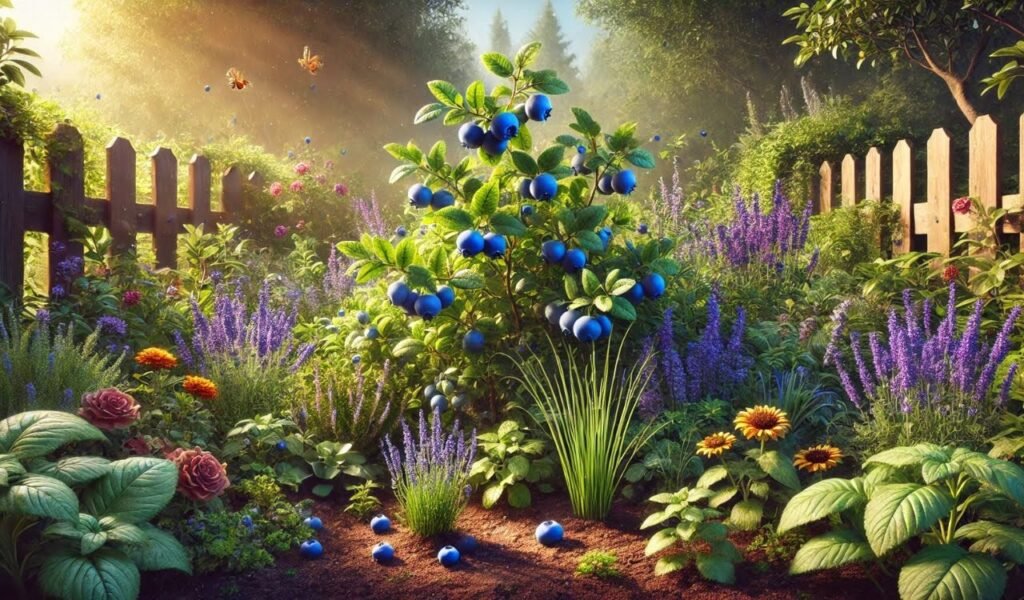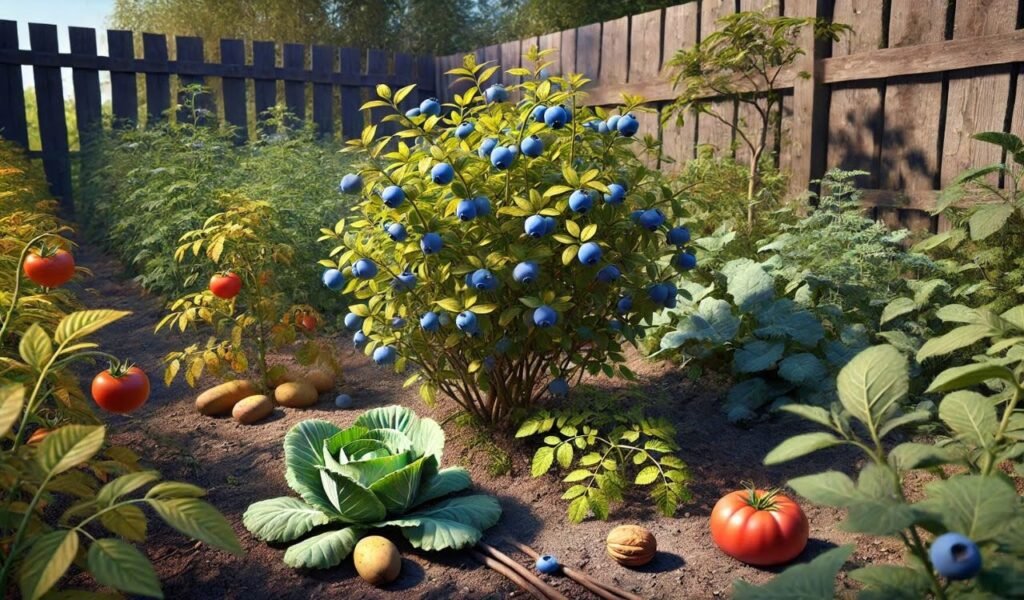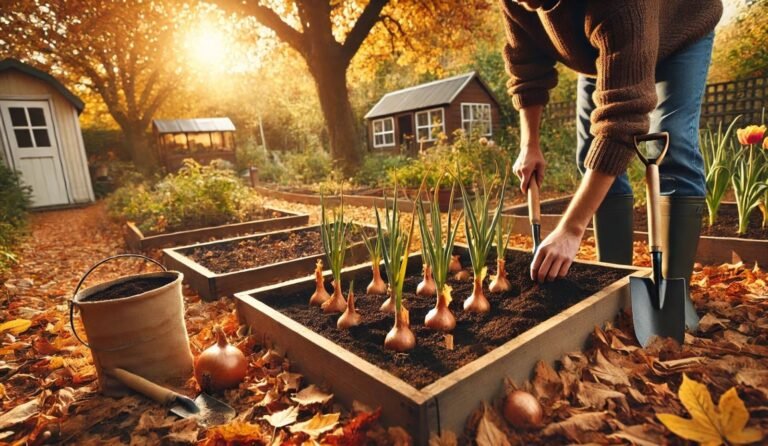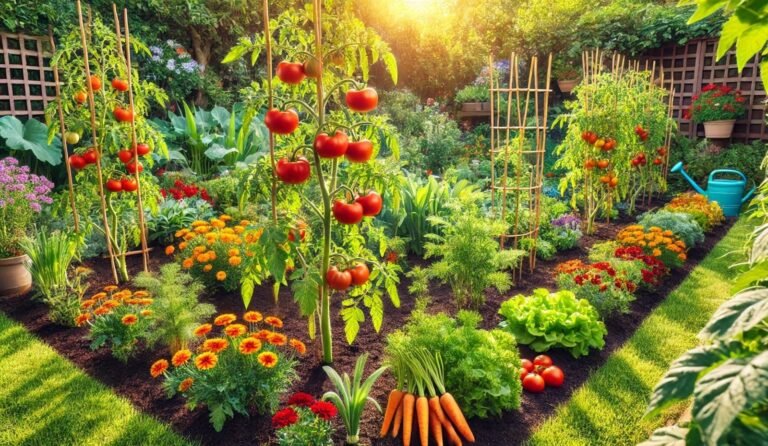Companion Plants for Blueberry to Boost Growth Naturally
Companion plants for blueberry can make or break your harvest. The right plants help boost growth, improve soil, and keep pests away—naturally. But not all plants play nice with blueberries! Some steal nutrients, while others mess with the soil pH. Want to know which plants are best and which to avoid? Let’s dive in and set your blueberry bushes up for success!
Understanding Blueberries: Soil, Sunlight, and Water Requirements
Before jumping into companion plants for blueberry, it’s essential to understand what blueberries need. These plants thrive in acidic soil with a pH between 4.5 and 5.5. If the soil is too alkaline, blueberries struggle to absorb nutrients, which leads to weak growth and low fruit production. The best way to maintain proper acidity is to use organic matter like pine needles, peat moss, or sulfur amendments. Regular soil testing can ensure the conditions remain optimal.
Blueberries require full sun exposure, meaning at least six to eight hours of direct sunlight each day. They also need consistent moisture, but they do not tolerate standing water. Ensuring well-draining soil is key to preventing root rot and other fungal diseases. One of the best ways to maintain soil moisture while preventing excessive wetness is by using organic mulch, such as pine bark or straw.
Pests like aphids, fruitworms, and spider mites can pose a problem, but companion plants can help keep these nuisances at bay naturally. Selecting plants that repel harmful insects while attracting beneficial pollinators will increase your chances of a healthy blueberry crop.
The Best Companion Plants for Blueberries

When selecting plants to grow alongside blueberries, it’s important to choose ones that share their love for acidic soil. Some plants can even improve soil health, attract pollinators, or repel pests.
Herbs That Help Blueberries Thrive
Many herbs make excellent companion plants for blueberries. They repel harmful insects while adding fragrance and flavor to your garden. Basil is a fantastic choice because it repels insects such as mosquitoes and flies while also being an excellent addition to your kitchen.
Thyme is another great herb that helps keep cabbage worms away and acts as a natural insect deterrent. Chives, known for their strong scent, effectively repel aphids, which can be a major threat to blueberry plants. Rosemary is another must-have herb, as it not only deters harmful bugs but also adds an aromatic appeal to the garden.
Flowers That Attract Pollinators and Protect Blueberries
Flowering plants play a crucial role in a blueberry-friendly garden. They bring in essential pollinators, such as bees and butterflies, ensuring a higher fruit yield. Marigolds are one of the most well-known pest-repelling flowers. Their scent deters nematodes and aphids, which can otherwise wreak havoc on blueberry plants.
Lavender, with its fragrant purple blooms, is an excellent pollinator attractor. It draws in bees and butterflies, which are essential for the fruiting process. Coneflowers, commonly known as echinacea, not only enhance the garden’s beauty but also support biodiversity by attracting beneficial insects.
Vegetables That Grow Well with Blueberries
Certain vegetables thrive in acidic conditions and offer additional benefits to blueberries. Lettuce is a perfect companion because it provides ground cover, helping to reduce weed growth while keeping the soil cool and moist. Radishes are another excellent choice, as they help break up compacted soil, allowing for better aeration and root expansion.
Legumes, such as beans and peas, are particularly beneficial because they are nitrogen-fixing plants. They help restore essential nutrients to the soil, which blueberries can then absorb for better growth.
Other Beneficial Plants for Blueberries
Beyond vegetables and flowers, some plants indirectly support blueberry growth by enriching soil conditions or acting as a natural mulch. Ferns are a fantastic option as they thrive in similar soil conditions while helping to retain moisture. Pine trees also play a beneficial role in blueberry companion planting.
Their fallen needles naturally increase soil acidity, maintaining the ideal pH level for blueberries. Additionally, clover serves as an excellent ground cover that fixes nitrogen into the soil, providing a steady supply of nutrients for blueberry bushes.
Plants to Avoid Near Blueberries

Just as some plants support blueberry growth, others can hinder it. Certain plant families are incompatible with blueberries due to their nutrient demands, root competition, or soil pH preferences.
Nightshade family plants, including tomatoes, peppers, potatoes, and eggplants, prefer neutral to alkaline soil, making them unsuitable companions for blueberries. These plants may compete for nutrients and create unfavorable soil conditions. Brassicas, such as cabbage, broccoli, cauliflower, and kale, are heavy feeders that deplete soil nutrients, leaving blueberries struggling to get what they need.
Another major plant to avoid is the walnut tree, as it releases a toxic compound called juglone, which inhibits the growth of many plants, including blueberries. While mint is a well-known insect repellent, it spreads aggressively, competing with blueberries for space, nutrients, and moisture, making it a poor companion choice.
Companion Planting Insights
While the main crux of blueberry companion planting revolves around which plants to grow alongside and which to avoid, there are additional layers of nuance to consider. As the gardening world delves deeper into the holistic approach of permaculture and sustainable gardening, here are some additional insights to keep in mind:
Permaculture Principles: When considering blueberry companion plants permaculture plays a key role. This gardening approach emphasizes creating a sustainable and self-sufficient ecosystem. Think of pairing blueberries with other plants that provide mulch, fix nitrogen, or offer other beneficial services to the garden ecosystem.
Vegetable Pairings: Blueberry companion plants vegetables like beans can be an excellent addition. Beans are nitrogen-fixers, which means they can benefit the soil by introducing more nitrogen – an essential nutrient for plant growth.
Herbal Companions: Delving into blueberry companion herbs, beyond the commonly known mint and sage, consider lemon balm, chamomile, or borage. Each of these herbs brings its unique benefits, from attracting beneficial insects to deterring pests or even enhancing flavor profiles in the garden.
Ground Cover Choices: To suppress weeds and maintain soil moisture, consider planting low-growing plants or ground covers. Clovers can be a good choice; they not only cover the ground but also fix nitrogen.
Consider Aesthetics: Beyond utility, the beauty of a garden also lies in its visual appeal. Choosing flowering companions for blueberries can add splashes of color throughout the growing season, turning your berry patch into a visual masterpiece.
Monitoring and Adapting: Every garden is a dynamic system. Even with all the knowledge at hand, always be ready to observe, learn, and adapt.
What works in one garden might need tweaking in another.
Tips for Successful Companion Planting
To get the most out of your companion planting efforts, it’s important to give each plant the right amount of space. Blueberries should not be overcrowded, and companion plants should be positioned in a way that complements their growth rather than competing for sunlight or soil nutrients. Using organic mulch, such as pine bark or sawdust, can help maintain the necessary soil acidity while also retaining moisture and suppressing weeds.
If you’re growing annual plants like lettuce or radishes, consider rotating them each season to keep the soil from becoming depleted. Most importantly, keep an eye on your garden and adjust as needed. Not all plants will perform the same in every environment, so experimenting with different companion combinations can help you determine what works best for your blueberries.
FAQ
What are the best companion plants for blueberries?
Herbs like basil, thyme, and chives, flowers like marigolds and lavender, and vegetables like lettuce and radishes make great companions for blueberries.
Can you plant blueberries next to tomatoes?
No, tomatoes prefer alkaline soil, while blueberries require acidic soil, making them poor companions.
Do blueberries need full sun?
Yes, blueberries thrive in full sun and need at least 6-8 hours of direct sunlight daily.
How do I keep pests away from my blueberry plants?
Planting pest-repelling herbs like rosemary and thyme, along with flowers like marigolds, can help deter harmful insects.
What is the best mulch for blueberries?
Organic mulch such as pine bark, peat moss, and straw helps maintain soil acidity and moisture.
Can blueberries be grown in containers?
Yes, blueberries grow well in containers, provided they have acidic soil and proper drainage.
Should I fertilize my blueberry plants?
Yes, using an acidic fertilizer designed for berries will help improve growth and fruit production.
Conclusion
Companion plants for blueberry is a natural and effective way to improve health and productivity. By choosing the right plants—such as herbs that deter pests, flowers that attract pollinators, and vegetables that enrich the soil—you can create a thriving, self-sustaining garden. On the other hand, avoiding nutrient-heavy plants and those that alter soil pH will ensure that your blueberries have the best possible conditions to grow and produce fruit.
Now that you know what to plant with blueberries, why not give companion planting a try in your own garden? With the right combinations, your blueberry plants will reward you with lush growth and bountiful harvests. If you found this guide helpful, feel free to share it with other gardening enthusiasts, and let us know in the comments what companion plants have worked best for your blueberries!







